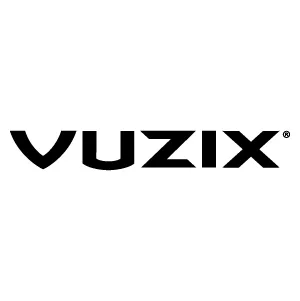Vuzix® Corporation, a leading supplier of Smart Glasses, waveguides and Augmented Reality (AR) technology, announced it has signed a series of agreements with Atomistic SAS (“Atomistic”), a next generation micro light emitting diode (“mLED”) display solutions enterprise based in France. These agreements provide for an exclusive license of key mLED technology, the design of a custom backplane and, dependent upon achievement of various technical stages, the ability to acquire the enterprise.
These agreements provide for an exclusive license of key mLED technology, the design of a custom backplane and, dependent upon achievement of various technical stages, the ability to acquire the enterprise.
Atomistic’s technology is based on a novel materials science innovation with specific attributes that are key enablers to solve the main challenges for mLED devices for AR applications : emitters for red, green and blue spectral wavelengths based on a single epitaxial structure transferred to a CMOS backplane; high brightness; and greater efficiency at small pixel pitches. The potential benefits of this new approach would result in one of the smallest form factors with the highest performance and lowest power solutions on the market, and could provide a cornerstone piece of technology focused on the AR markets that are expected to demand hundreds of millions of units annually.
For the AR and heads-up display (HUD) markets, there is a clear need for self-emissive ultra-small microdisplays that are high in brightness and efficiency, full color, compact and scalable to support low-cost and high-volume manufacturing. For the wearable display/AR glasses markets specifically, mLED displays as contemplated by Atomistic combined with Vuzix’ see-through waveguides provide the technical solution which is so pivotal to developing fashion forward, ergonomic AR glasses. This market is expected to ultimately be as large as the current smart phone market with many expecting AR smart glasses to be the future mobile computing platform for consumers and enterprises globally.
Atomistic Background:
Atomistic was established for the sole purpose of delivering next-generation mLEDs based on novel materials science innovations and system level integration on advanced node CMOS backplanes of it’s own design. Its principal founders, Jonathan Sachs, PhD and Jerry Woodall, PhD, are well known experts in the fields of materials science, the compound semiconductor heterojunction (along with other compound semiconductor devices), LEDs, lasers and micro-displays on silicon backplanes using various modulating techniques and have both successfully developed and patented significant and cornerstone advancements in the technology space.
Dr. Sachs has a broad knowledge of semiconductor materials and their applications to high temperature and high-speed electronics, optoelectronics, electrical and optical properties of materials (LEDs, lasers), device physics, and design of CMOS integrated circuits. Over the last 25 years, he founded and has driven numerous semiconductor and display-based technology companies whose technology today is used by leading companies in the field.
Dr. Woodall has had a pioneering role on the research and development of compound semiconductor materials and devices over a career spanning five decades. In 2001, Dr. Woodall received the National Medal of Technoloy and Innovation, the Nation’s highest honor for technological achievement granted by the President of the United States. He has been cited for the invention and development of technologically and commercially important compound semiconductor heterojunction materials, processes and related devices, such as red and infrared LEDs, lasers, ultra-fast transistors and solar cells. He was one of the pioneers of the liquid-phase epitaxial growth of high efficiency infrared LEDs, which led to his most important research contribution so far: the first working gallium aluminum arsenide/gallium arsenide heterojunction, the interface between two different semiconductor materials. This remains one of the world’s most important compound semiconductor heterojunctions.
Technology Background
Atomistic has developed a novel approach to solving fundamental challenges associated with very small pixel pitch, exceptionally bright, full color uLED displays required for the AR market and its closely associated markets.
The Atomistic team, along with system level support from Vuzix, will be delivering a backplane on advanced node 300mm wafers intended to support mLEDs based upon its innovative material science as well as alternative LEDs from potential third party suppliers.
“Being in the semiconductor industry specializing on LEDs and microdisplays for all these years, we have created countless solutions that have advanced the state-of-the-art; from the fundamentals of heterojunction physics to advanced displays in the LCoS and OLED fields. Working with Vuzix on advancing this leading technology where we have lived for our entire professional careers should result in one of the most advanced displays we have developed yet. Having the insights of the Vuzix team will be invaluable to help ensure the system level solution hits the mark for product. We are very excited to be part of this effort with Vuzix as a partner,” said Drs. Sachs and Woodall.
“We are thrilled to be partnering with these two revolutionary visionaries and their newly formed entity Atomistic,” said Paul Travers, President and CEO of Vuzix. “We look forward to supporting their efforts to change the world with new microdisplays that will work “hand-in-glove” with Vuzix’ industry leading waveguides. This deal has been structured to heavily align the two principals, and Atomistic as a company, to the success of the program and ultimately along with Vuzix. The developed solutions will be used in Vuzix’ own products and, in the future, mLED displays coupled with Vuzix advanced high-volume waveguides will be offered globally to third party OEMs for use in their AR glasses.”

